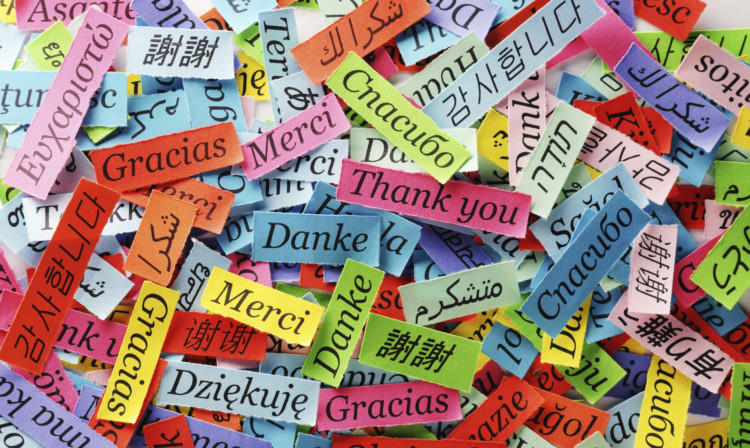Mind your language? Brits don’t bother if it’s not the Queen’s English. Helen Brown finds that even in the 21st Century, we’re still not talking the talk.
The British are bad at foreign languages. Enough said.
It’s a claim and generally accepted as an embarrassing reality that has become more than a bit of a cliche, but it’s an accusation that never fades. It’s the same old, same old for many of us where getting lost in translation is concerned. As a friend of mine once mused: “What’s French for deja vu?”
It’s stating the glaringly obvious to say that, from the days of past glories when Britannia ruled the waves and the map was coloured pink, the hangover of Empire has meant that because English was so widely spoken, many people in Britain felt little or no inclination to take on another tongue. Now, however, with a changing world order and the need to live, work and do business in a global economy, lack of language skills or the will to acquire them is increasingly resulting in a bit of a national red face.
“Think global, act local” seems to translate into “Think global, speak only the language you were born speaking”; and what is the point, after all, of living in a global village if you can’t talk to your neighbours?
You can blame anything from suspicion of foreigners to market forces in education but only this week, yet another plea has emerged from a cross-party group of MPs and peers for a “national recovery programme”, to help future generations look beyond their mother tongue.
Command of a foreign language indicates a lot of things a willingness to communicate with others on their terms, to embrace another culture and way of life, to see the world through different eyes and different sounds. And in more muscularly fiscal terms, the UK is said to be losing close to £50 billion annually in potential contracts, due to poor or non-existent language skills across the workforce. Money talks, but not necessarily the same language.
Figures released last year indicated that the number of universities offering modern foreign language courses has declined by 40% over the last decade and a half; and the call from the All-Party Parliamentary Group comes not long after a five per cent drop in languages candidates applying to university was revealed.
Dundee University no longer offers specialist modern language degrees, although there are language options combined with other degree subjects. Applied language courses are fast-track accredited courses in French, German and Spanish and a language course can be included in almost any undergraduate degree programme. There is also the Languages For All programme, mainly taught in the evening, including Arabic, Chinese (Mandarin), French, Gaelic, German, Italian, Japanese, Latin, Spanish and Russian.
Reports from 2001 indicated that almost all Scottish pupils studied a language up to fourth year level but that this had dropped to 67% by 2010. In Scottish schools, despite a decrease in the number of candidates entered for national qualifications in 2013 down from 158,908 in 2012 to 150,986 in 2013 uptake levels across most modern languages courses have remained fairly stable.
Performances across SQA courses in modern languages including Chinese (Cantonese and Mandarin), French, German, Italian, Russian, Spanish and Urdu, as well as Gaelic, remained stable for 2013, with pass rates largely in line with previous years. Interest in French and German seems to have declined most steeply, with Spanish and Italian on the increase and a growing interest in Chinese among learners from a non-heritage background.
The Scottish Government has a stated commitment to “reinvigorating language learning” and helping Scottish pupils to learn a second language such as French, German, Spanish or Chinese in primary school, with other language schemes rolled out at nursery level.
There are fears, however, that languages may be come the preserve of a moneyed elite or the privately educated if measures are not taken to encourage pupils to choose them over alternative courses that may still be seen as more relevant. Selling languages to young people as a worthwhile career tool (and potential earnings booster) might be the key. There is increasing evidence employers across the board value and are prepared to pay well those workers who can offer languages. Unemployment rates for language graduates are apparently very low.
I can’t speak. Language learning when I was at school was compulsory at least for French or German and having done well in my Highers, I cannot now speak either fluently, although a good memory for vocabulary and a brass neck still gets you a long way. Though I suspect that’s because people are still completely taken aback by anyone from this sceptred isle even making the attempt. Or maybe they just feel sorry for me.
I took up a Spanish evening class this year and, boy, does it use mind muscles that haven’t been exercised in years. Taking the plunge into talking about something other than beer, tapas, vino tinto and the location of the servicios takes verbal vim. But you know something? It’s satisfying, interesting and fun. And if, like a potential new generation of confident, multi-lingual, outward-looking young people, you might actually be able to travel the world and make a decent living, too, I for one think there’s a lot to be said for it.
